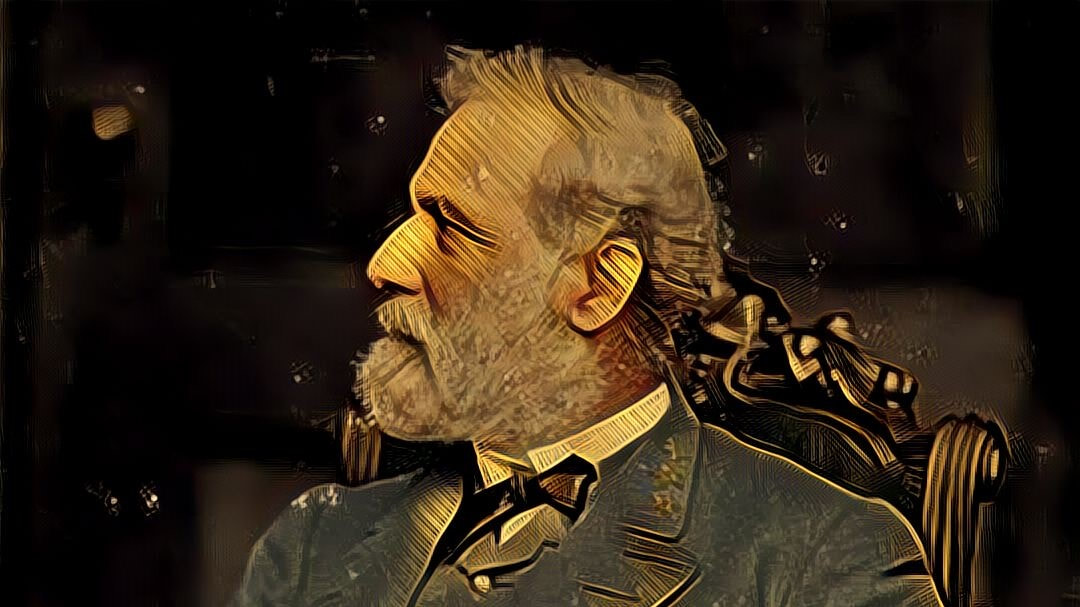|
His father was a dashing cavalry officer in the struggle to free the colonies from the British. Two uncles signed the Declaration of Independence. His wife was the granddaughter of Martha Washington. At West Point he was second in his class with an outstanding record of no demerits. His brilliant engineering work was credited with saving St. Louis from destructive floods. In the war with Mexico he was chief of engineers on the staff of the general commanding the expeditionary force deep in Mexico and carried out vital and dangerous missions. As commandant at West Point he improved the institution, giving the cadets an environment of professionalism and honour. In the period before the war between the States he was commanding cavalry on the dangerous Texas frontier. When division became inevitable with the election of an aggressively sectional President, he was offered the supreme command of the forces of the U.S. government to put down “the rebellion,” an opportunity that could lead to fame, wealth, and even the Presidency. The crafty politicians made the offer indirectly so they could deny it if he refused, which they did. A “Union” held together by bayonets did not meet his idea of the “Union” that his folks had done so much to create. He went home to defend his folks, which he did with world-class skill. He won epic battles again and again with greatly inferior numbers and resources. In sharp contrast to high-living Northern generals with large staffs and lavishly uniformed escorts, he lived the simple life of a soldier in the field. He was admired around the world and so valued by his soldiers that they blocked him from advancing into the line of fire. When defeat was inevitable, he quietly accepted surrender and returned to his family as a paroled prisoner of war and a non-citizen of a country which his people had done so much to create. He might have dispersed his men to carry on a guerilla war that could have lasted for years but he knew that his Southern people would continue to suffer with that course. His family home had been stolen and maliciously turned into a cemetery for his enemies, but his fame brought offers of a gift of an English estate and efforts of businessmen to use his name that would have made him rich. Instead, he accepted a meager salary as president of a small, struggling college. His only hesitation in accepting was fear that he might bring persecution on the college. At Washington College, which in time would become Washington and LEE University, he expanded the curriculum in useful directions and installed a notable honour code. He urged young men to quietly work at rebuilding the South. He created what was once known as LEE Chapel, where his final resting place is being hidden from visitors. President Truman had an equestrian painting of Lee and Jackson in the front lobby of his Presidential Library. President Eisenhower had Lee’s portrait in the Oval Office, defended him vigorously, and commissioned a nuclear submarine, the Robert E. Lee. Churchill described him as among the greatest captains in the long history of the English-speaking people. Almost 20 years after the war, with thousands of small contributions from an impoverished people, was made a statue for Monument Avenue in the city that he had defended. It was not only a magnificent memorial but also a significant work of art. Hundreds of people volunteered labour in the erection. Hundreds of former soldiers slept on the grass around the monument the night before the dedication. The dedication drew the greatest crowd ever seen in the city, and it included African Americans and former Union soldiers. Almost all our large cities are now controlled by ignorant, often corrupt, prancing politicians. In Richmond they got rid of the monument—not just took it down but destroyed it beyond rescue. And all the monuments to Lee’s famous lieutenants as well as that of the great scientist Matthew Maury, “the Pathfinder of the Seas," were treated likewise. Monument Avenue is now a memorial to a tennis player who died of AIDS. It would be interesting to know what some intelligent visitor from space or from a future culture would make of this. Perhaps he would sense the petty malice of people who were incapable of building but delighted in tearing down. Then we have a chorus of high-ranking generals chirping about “Lee the traitor.” These men are not soldiers, merely successful in climbing the greasy bureaucratic pole. They are too ignorant of history to understand that the nature of the Union was the issue of the war. They have no merit in accomplishment, intellect, or character. They are only pygmies flopping around in the shoes of better men. Lee never swore an oath to the U.S. government. He, like everyone, swore to uphold and defend the Constitution for the United States. He did that all his life. He swore no oath to defend the Republican politicians who gained control of the government apparatus. And the Constitution defines treason as “making war against the States,” something which he fought bravely against.
6 Comments
|
AuthorClyde Wilson is a distinguished Professor Emeritus of History at the University of South Carolina He is the author or editor of over thirty books and published over 600 articles, essays and reviews Archives
July 2024
|

